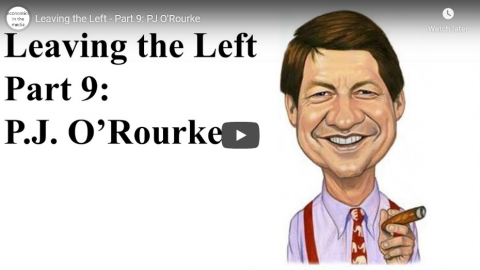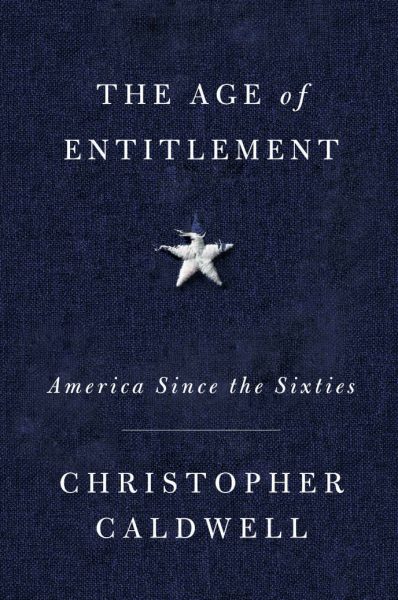Let me be clear that I think immigration and diversity are good things, overall. The economists seem to agree that immigration brings large economic benefits. The complete dominance of America in Nobel prizes, music, and the arts, and now the technology sector, would not have happened if we had not been open to immigrants. But as a social psychologist, I must point out that immigration and diversity have many sociological effects, some of which are negative. The main one is that they reduce social capital — the bonds of trust that exist between individuals. The political scientist Robert Putnam found this in a paper titled “E Pluribus Unum,” in which he followed his data to a conclusion he clearly did not relish: “In the short run, immigration and ethnic diversity tend to reduce social solidarity and social capital. New evidence from the US suggests that in ethnically diverse neighborhoods residents of all races tend to ‘hunker down.’ Trust (even of one’s own race) is lower, altruism and community cooperation rarer, friends fewer.”
In short, despite its other benefits, diversity is a centrifugal force, something the Founders were well aware of. In Federalist 2, John Jay wrote that we should count it as a blessing that America possessed “one united people — a people descended from the same ancestors, the same language, professing the same religion.” I repeat that diversity has many good effects too, and I am grateful that America took in my grandparents from Russia and Poland, and my wife’s parents from Korea. But Putnam’s findings make it clear that those who want more diversity should be even more attentive to strengthening centripetal forces.
Jonathan Haidt, “The Age of Outrage: What the current political climate is doing to our country and our universities”, City Journal, 2017-12-17.
February 16, 2020
QotD: Immigration and diversity
February 11, 2020
Leaving the Left – Part 9: PJ O’Rourke
Economics in the Media
Published 18 Aug 2016“When I got my first paycheck I found that I netted $82.27 after federal income tax, state income tax, city income tax, Social Security, union dues, and pension fund contribution. I was a communist. I had protested for communism. I had rioted for communism. Then I got a capitalist job and found out we had communism already.”
– The Baby Boom, PJ O’RourkeParliament of Whores: A Lone Humorist Attempts to Explain the Entire U.S. Government
Full Interview with Peter Robinson
https://youtu.be/keJYIkxbieg
February 5, 2020
“On this issue, Canada’s two solitudes could hardly be more starkly apparent”
Chris Selley on the vastly different reaction from Quebec media to the Trudeau government’s notion to turn the country’s news organizations into a modern version of Joseph Goebbels’ propaganda apparatus, pumping out approved-by-the-Liberals story lines:
On Sunday, when CTV’s Evan Solomon pushed Heritage Minister Steven Guilbeault on the issue of issuing journalism licences to foreign media outlets, Guilbeault eventually just shrugged: “I’m not sure I see what the big deal is.”
The minister tried to walk it back on Monday, but the fact is many of his fellow Quebecers will also struggle to discern a big deal. There is simply much more tolerance of this sort of cultural gatekeeping among francophone Quebecers than in the Rest of Canada, and the tolerance extends well into the realm of journalism.
“In reading the (report’s) 260 pages and 97 recommendations, one word comes to mind” Sunday’s editorial in La Presse gushed: “Finally!”
Opposition to government regulation of journalism is firmly entrenched not just in anglophone Canada, but across the anglosphere. When the 2011 Leveson Inquiry proposed the British government create a powerful new press regulator, nearly every major outlet rejected the idea. Fraser Nelson, editor of The Spectator, famously vowed the magazine “will not attend its meetings, pay its fines nor heed its menaces.”
The same year, Laval University professor Dominique Payette’s report into Quebec’s struggling news media recommended the government legislate a “professional journalist” designation. The province’s largest journalists’ trade organization and the Quebec Press Council happily sat down with the government to bash out a power-sharing agreement on deciding who’s a proper journalist and who isn’t.
The English-language Montreal Gazette was dead-set against the idea, but Le Devoir called it a “logical outcome.” (The power-sharing discussions eventually fell apart, and the idea died a merciful death.)
February 4, 2020
Andrew Sullivan – “Our fate was almost certainly cast as long ago as 1964 and 1965”
In his most recent New York magazine column, Andrew Sullivan reviews two new books on the same issues from different perspectives: Ezra Klein’s Why We’re Polarized and Christopher Caldwell’s The Age of Entitlement.
… both books agree on one central thing: Our fate was almost certainly cast as long ago as 1964 and 1965. Those years, in the wake of the Kennedy assassination, saw the Civil Rights Act upend the Constitution of a uniquely liberal country in order to tackle the legacy of slavery and racism, and the Immigration and Nationality Act set in motion the creation of a far more racially and ethnically diverse and integrated society than anyone in human history had previously thought possible. Still, at the time, few believed that either shift would have huge, deep consequences in the long term. They were merely a modernization of American ideals: inclusivity, expansiveness, hope.
As someone who was born just before these two changes were instigated, I regarded those tectonic shifts as simply part of the landscape — something that seemed always to have been here. And what could be questioned about either? One was reversing a profound moral evil; the other was banishing racism from the immigration laws. No-brainers. The strongest resistance to civil rights came from former segregationists or obvious racists, and there was little resistance to the Immigration Act, because most in the congressional debate seemed to think it wouldn’t change anything much at all. (The House sponsor of the Immigration Act, as Caldwell notes, promised that “quota immigration under the bill is likely to be more than 80 percent European,” while Ted Kennedy insisted: “The ethnic mix of this country will not be upset.”) There were a few dissenters to the 1964 Act, such as Robert Bork, who identified a significant erosion in the freedom of association. And there were southern senators who worried about immigrants from the developing world. But the resisters were easily dismissed on both counts, in the wake of LBJ’s 1964 landslide.
In fact, as Klein shows, a pivotal moment had arrived. The civil-rights movement quickly broke apart the old Democratic party, which had for decades combined the interests of blacks and southern whites into a single multiracial coalition. The result was a sorting of the two political parties into much purer vessels for their diverging ideologies, and into groupings that were also increasingly racially distinct. The GOP became whiter and whiter; the Democrats more and more became the party of the marginalized nonwhites as the years rolled by. Blacks and southern whites ceased to communicate directly within a single party, where compromises could be hammered out through internal wrangling. In the aggregate this was, as Klein emphasizes, a good thing — because blacks kept coming out the losers in those intraparty conversations, and with civil rights, they had a chance of winning in a clearer, less rigged, debate.
But it was also problematic because human beings are tribal, psychologically primed to recognize in-group and out-group before the frontal cortex gets a look-in. And so the whiter the GOP became, the whiter it got, and the more diverse the Democrats got. Simultaneously, the economy took a brutal toll on the very whites who were alienated by the culture’s shift toward racial equality, and then racial equity. Klein recognizes that this racial polarization, is, objectively, a problem for liberal democracy: “Our brains reflect deep evolutionary time, while our lives, for better and worse, are lived right now, in this moment.” So he can see the depth of the problem of tribalism — and its merging with partisanship, which goes on to create a megatribalism.
If humans simply cannot help their tribal instincts, then a truly multicultural democracy has a big challenge ahead of it. The emotions triggered are so primal, that conflict, rather than any form of common ground, can spiral into a grinding cold civil war. And you can’t legislate or educate this away. One fascinating study Klein quotes found that “priming white college students to think about the concept of white privilege led them to express more racial resentment in subsequent surveys.” Anti-racist indoctrination actually feeds racism. So tribalism deepens.
Klein sees this spiral more clearly than most on the left. He acknowledges the truth that in a period of extraordinary demographic and racial change — the U.S. is the first majority-white nation that will become majority nonwhite in human history — every group begins to feel like an oppressed minority. Including whites: “To the extent that it’s true that a loss of privilege feels like oppression, that feeling needs to be taken seriously, both because it’s real, and because, left to fester, it can be weaponized by demagogues and reactionaries.” And the truth is: It was left to fester. Whenever whites resisted ever-expanding concepts of civil rights or mass illegal and legal immigration, they were cast outside the arena of permissible disagreement, deemed racists, and stigmatized. Even the GOP scorned them. Eventually, Hillary Clinton named them: the deplorables. By 2016, plenty of Americans decided to embrace the label, and voted for Trump.
January 29, 2020
Charles Stross on “reality” TV
I don’t watch much TV at all … after catching the Superbowl on Sunday, I may not turn on the TV until the NFL preseason gets underway in the summer, so my impressions of reality TV offerings are gathered second- or third-hand at best. That said, I do recall watching some very early reality TV in the late 80s or early 90s (the one that comes to mind was something like “take a bunch of urban Brits and dump them in a recreated iron age village”). As Charles Stross describes the current crop of shows, I’m very confident that I’ve missed absolutely nothing over the decades:
I watch as little television as I can, and most of it by accident.
Whenever I do catch an eyeful, it usually consists of one of three things: a talking heads news channel, organized sportsball, or a Reality TV show. The first I try to ignore (they’re usually triangulated on the tabloid newspapers with added eye candy, then dumbed down: as information sources this century, TV news channels are useless). The sportsball I leave to my spouse (who is prone to lecturing me interminably about Manchester City). But the latter phenomenon — Reality TV — has all the grisly attention-grabbing potential of a flaming school bus careening out of control into a public execution: I basically have to leave the room in a hurry to avoid having my eyeballs sucked right out of my head by the visual media equivalent of internet clickbait.
What makes Reality TV shows so addictive?
The sector is dominated by a couple of competing recipes. As in so many mature markets, there’s an 80/20 split between a dominant incumbent and an insurgent that isn’t quite successful enough to overturn a monopoly but is too tenacious to die. Think Android/iPhone, or car/pick-up truck (that latter died about a decade ago in the US).
In the case of rTV shows, the 20% insurgent is about people demonstrating competence. Mythbusters was the classic competence-porn show (although it deteriorated into the explosion-of-the-week club after a few seasons): using science!!! and workshop/lab work to evaluate the plausibility of urban legends. Other competence rTV shows include: a team of dudes acquire a car wreck and restore it to good-as-new condition, a former special forces soldier/scout troop leader is dumped on a desert island and demonstrates survival skills, and so on.
But the other 80% of rTV shows are incompetence porn.
Incompetence porn Reality TV, as pioneered by Big Brother, usually aims to get the audience to laugh at or mock the participants in a contest designed to plumb the depths of humiliation. Instead of dropping a fit expedition leader on a desert island, the show dumps a bunch of washed-up B-list celebs in a wilderness of mosquitos and no soft toilet paper. Or perhaps it’s a bunch of Armani-suited sociopaths in a boardroom where they’re expected to pitch business start-up proposals at a washed-up B-list business celeb like Alan Sugar (or, in the American version of The Apprentice, a certain mobbed-up New York property speculator with shady Russian banking connections). Back-stabbing is a given in the celebrity/sociopath driven variant of rTV, as incompetent contestants are shoved out of the show at every episode until only the most obliviously egocentric remains.
(Note that the survivor selection criterion isn’t “competence”, be it at wilderness survival or boardroom brown-nosing: it’s entertainment value. Because these shows, despite the name, aren’t about reality, they’re showbiz.)
But these aren’t the worst.
“CanCon” rules for internet streaming services will be “inevitable”
Yes, the federal government is serious about extending the moronic “Canadian content” regime to internet streaming companies (like Netflix). Canadians are too blind to be allowed to select all of their own viewing without the paternal hand of government jiggling those choices in a politically desired direction, as Michael Geist explains:
Later this week, a government appointed panel tasked with reviewing Canada’s broadcast and telecommunications laws is likely to recommend new regulations for internet streaming companies such as Netflix, Disney, and Amazon that will include mandated contributions to support Canadian film and television production. In fact, even if the panel stops short of that approach, Canadian Heritage Minister Steven Guilbeault and Canadian Radio-television and Telecommunications Commission chair Ian Scott have both signalled their support for new rules with Mr. Guilbeault recently promising legislation by year-end and Mr. Scott calling it inevitable.
My Globe and Mail op-ed notes that the new internet regulations are popular among cultural lobby groups, but their need rests on a shaky policy foundation as many concerns with the fast-evolving sector have proved unfounded.
[…]
Third, the not-so-secret reality of the Canadian system is that foreign location and service production and Canadian content are frequently indistinguishable. Qualifying as Canadian requires having a Canadian producer along with meeting a strict point system that rewards granting roles such as the director, screenwriter, lead actors, and music composer to Canadians.
Yet this is a poor proxy for “telling our stories”. The rules mean foreign companies can never produce Canadian content leading to the absurd outcome that revivals of Canadian programs such as Trailer Park Boys and Degrassi will not meet the qualification requirements if Netflix is the sole funder and producer. Moreover, programs such as The Handmaid’s Tale may be based on a Margaret Atwood novel, but using one of Canada’s best known novelists as the source doesn’t count in the Canadian points system.
So what is Canadian? A quick scan of Canadian Audio-Visual Certification Office data turns up Blood and Fury: America’s Civil War, The Kennedys, Murder in Paradise, Natural Born Outlaws, Who Killed Ghandi?, and dozens of other programs that are Canadian in regulation-only. Further, there are also “co-productions”, in which treaty agreements deem predominantly foreign productions such as The Borgias or Vikings as Canadian.
January 27, 2020
QotD: The radicalization of the Republican Party
When the Democrats ran the House of Representatives for almost all of six decades, before 1995, they did not treat the Republican minority particularly well. So I can understand Newt Gingrich’s desire for revenge when he took over as Speaker of the House in 1995. But many of the changes he made polarized the Congress, made bipartisan cooperation more difficult, and took us into a new era of outrage and conflict in Washington. One change stands out to me, speaking as a social psychologist: he changed the legislative calendar so that all business was done Tuesday through Thursday, and he encouraged his incoming freshmen not to move to the District. He did not want them to develop personal friendships with Democrats. He did not want their spouses to serve on the same charitable boards. But personal relationships among legislators and their families in Washington had long been a massive centripetal force. Gingrich deliberately weakened it.
And this all happened along with the rise of Fox News. Many political scientists have noted that Fox News and the right-wing media ecosystem had an effect on the Republican Party that is unlike anything that happened on the left. It rewards more extreme statements, more grandstanding, more outrage. Many people will point out that the media leans left overall, and that the Democrats did some polarizing things, too. Fair enough. But it is clear that Gingrich set out to create a more partisan, zero-sum Congress, and he succeeded. This more combative culture then filtered up to the Senate, and out to the rest of the Republican Party.
Jonathan Haidt, “The Age of Outrage: What the current political climate is doing to our country and our universities”, City Journal, 2017-12-17.
January 18, 2020
History Summarized: Classical India
Overly Sarcastic Productions
Published 17 Jan 2020Classical and Medieval Indian History is a tale of constant flux — but in between the dozens and hundreds of states at play across the peninsula, there are clear trends that arise. Let’s take this chapter of history as an opportunity to dig into different types of sources, and try and wrap our heads around a story that doesn’t fit neatly into a single chronology.
FURTHER SOURCES: The Discovery of India by Jawaharlal Nehru, “A History of India” by Michael H. Fisher (lecture courtesy of The Great Courses).
Our content is intended for teenage audiences and up.
PATREON: https://www.Patreon.com/OSP
DISCORD: https://discord.gg/y7uUnzJ
MERCH LINKS: https://www.redbubble.com/people/OSPY…
OUR WEBSITE: https://www.OverlySarcasticProductions.com
Find us on Twitter https://www.Twitter.com/OSPYouTube
Find us on Reddit https://www.Reddit.com/r/OSP/
January 16, 2020
“… he returned to settle in a 250-year-old farmhouse in Wiltshire which he named ‘Scrutopia'”
In Quillette, Barbara Kay remembers Sir Roger Scruton:
Scruton’s breadth of knowledge was astonishing. None of his enemies could dispute that. He wrote whole books with complete authority on religion, architecture, opera, the environment, Islam, philosophy. But running through them all was a guilt-free love for, and fidelity to his — our — cultural inheritance. He loved his own home, England, and he would not repudiate it for its disfiguring historical warts, which seemed to preoccupy almost everyone else. It was Scruton who gave us the word “oikophobia” — hatred of one’s home — which is the hallmark of progressivism. He was out of sync with the hey-hey-ho-ho-western-civ-has-got-to-go zeitgeist. It didn’t help that he was the son of a lowly schoolmaster and had gone to the Royal Grammar School High Wycombe, a selective public high school.
Feeling isolated, like Andrew Sullivan and Christopher Hitchens before him, Scruton drifted “across the pond” to breathe the friendlier air of the last western redoubt where conservative thought finds a welcoming hearth. From 1992 to 1995, he taught a philosophy course at Boston University, and he spent a second stint in America from 2004 to 2009. But the pull of his beloved England proved too great, and he returned to settle in a 250-year-old farmhouse in Wiltshire which he named “Scrutopia.”
[…]
Among those who expressed their gratitude to Scruton in his final year were the governments of Poland and Hungary, who garlanded him with honors for the role he’d played in overthrowing the Communist regimes that had blighted their countries before the fall of the Berlin Wall. This recognition followed his receipt of the Czech Medal of Merit (First Class), presented to him by Vaclav Havel in 1998. At great risk to himself, Scruton had smuggled banned books across the Iron Curtain and helped dissidents organize an underground university, even arranging for degrees to be awarded by the Cambridge theology department. Among his other achievements, he was on the right side of history.
I cherish the memory of a brief conversation I had with Scruton after his Ottawa talk, in which he had expanded on the idea of decency, a concept of great interest and importance for me, especially in retrospect, for Scruton was himself a supremely decent man, although that did not save him from the postmodern jackals. I remember he said decency was easy to regulate in small towns, because you can’t be happy in a small town without a willingness to conform to standards. But these standards aren’t written down. There is no need. Everyone knows what they are. You know you’ve transgressed them when you receive disapproving glances or are cold-shouldered.
Compelled conformity — not legislated, God forbid, but enforced by social pressure — looks stifling to progressives, but in its own way it can be a great comfort, knowing the rules of what is and isn’t decent, and, through them, belonging. We all want to belong, but healthy belonging is sensitive to scale. We’re not made for globalization. We’re made for homes and homelands. If people don’t have homes to keep them rooted, feeling they belong in a good way, they will find fake homes that are tethered to ideas and theories, and then they often belong in a bad way. These are Scrutonesque musings.
Conformity and its effects, good and bad, absorbed Scruton. He once described the entire trajectory of his life as a constant movement toward “that impossible thing: an original path to conformity.” Like so many other of his gnomic utterances, it forces one to stop and think, really think, about what it means. And you know it means something worth thinking about because Roger Scruton never thought or spoke or wrote bullshit. He left that to his critics.
December 27, 2019
A Christmas 2.0? – Kwanzaa – December 26th – TimeGhost of Christmas Past – DAY 3
TimeGhost History
Published 26 Dec 2019It is in the Civil Rights Movement of the 1960s, that a young doctor of African studies decides to create his own holiday in California. Half a century later and this holiday has now become the nation-wide Kwanzaa.
Join us on Patreon: https://www.patreon.com/TimeGhostHistory
Hosted by: Indy Neidell
Written by: Rune Væver Hartvig and Spartacus Olsson
Directed by: Spartacus Olsson and Astrid Deinhard
Executive Producers: Bodo Rittenauer, Astrid Deinhard, Indy Neidell, Spartacus Olsson
Creative Producer: Joram Appel
Post-Production Director: Wieke Kapteijns
Research by: Rune Væver Hartvig
Edited by: Mikołaj Cackowski
Sound design: Marek KamińskiColorization by:
Julius Jääskeläinen – https://www.facebook.com/JJcolorization/Sources:
valphotography https://flic.kr/p/6yoUEF
Emilio Labrador https://flic.kr/p/65sBT1
Robert Couse-Baker https://flic.kr/p/b2oyrr
Boston City Archives
From the Noun Project:
umoja by Travis Avery
kinara by Travis Avery
Human by AngelinaSoundtracks from Epidemic Sound:
Howard Harper-Barnes – “A Sleigh Ride Into Town”
Zauana – “Encountering the Unknown”
Sahara Skylight – “Streams of Africa”
Sahara Skylight – “Arriving in Ghana”
Sight of Wonders – “Wildlife Sunrise”A TimeGhost chronological documentary produced by OnLion Entertainment GmbH.
From the comments:
TimeGhost History
17 minutes ago
Today, December 26, our TimeGhost of Christmas Past looks back in the not-too-distant history – in fact into a time in history when some of us here were alive. See, in 1966, Dr. Maulana Karenga decides to create his own holiday in the midst of the holiday season, and, as you’ll see, the rest is history. Now, before some of you become all judgemental and begin shouting in the comment section, remember what Indy says in the video. Think twice before you write something, and please adhere to our community guidelines. And even if you have something controversial to say or not, we’d still like you to share some holiday cheer with us by supporting us on Patreon. It is because of our Patreons that we can fly back into the past and their contributions are vital. See you tomorrow!
December 1, 2019
The German Plan to Destroy French Culture – The Occupation of France – WW2 – 066 – November 30, 1940
World War Two
Published 30 Nov 2019While Hitler consolidates his power in occupied France, Japanese and Italian forces try to get an edge, but fail. The war is not looking too well for anyone at this point.
Join us on Patreon: https://www.patreon.com/TimeGhostHistory
Or join The TimeGhost Army directly at: https://timeghost.tvFollow WW2 day by day on Instagram @World_war_two_realtime https://www.instagram.com/world_war_t…
Join our Discord Server: https://discord.gg/D6D2aYN.
Between 2 Wars: https://www.youtube.com/playlist?list…
Source list: http://bit.ly/WW2sourcesWritten and Hosted by: Indy Neidell
Produced and Directed by: Spartacus Olsson and Astrid Deinhard
Executive Producers: Bodo Rittenauer, Astrid Deinhard, Indy Neidell, Spartacus Olsson
Creative Producer: Joram Appel
Post-Production Director: Wieke Kapteijns
Research by: Indy Neidell
Edited by: Mikołaj Cackowski
Map animations: Eastory (https://www.youtube.com/c/eastory)Colorizations by:
– Adrien Fillon (https://www.instagram.com/adrien.colo…)
– Dememorabilia (https://www.instagram.com/dememorabilia/)Sources:
-Archiwum CyfroweArchive by Screenocean/Reuters https://www.screenocean.com.
A TimeGhost chronological documentary produced by OnLion Entertainment GmbH.
November 30, 2019
Toynbee’s warning
In the National Post, Barbara Kay wonders if conservative democracy can shore up the civilizational boundaries that liberal democracy has abandoned:

The Course of Empire – Destruction by Thomas Cole, 1836.
From the New York Historical Society collection via Wikimedia Commons.
The historian Arnold Toynbee warned that “civilizations die from suicide, not by murder.” He said they begin to disintegrate when they abandon moral law and yield to their impulses, which in turn brings about a state of passivity, a sense that there is no point in resisting incoming waves of foreigners driven by confidence and purpose.
Since Toynbee, other writers, notably James Burnham in his influential 1964 essay, “Suicide of the West: An essay on the Meaning and Destiny of Liberalism”, have picked up on the theme. In every case in which the word “suicide” features, the root cause comes down to the effects of a universalist liberal democracy over time. These observers are not trading in fear-mongering for its own sake. We must pay respectful attention to their warnings.
Liberal democracy is, broadly speaking, a political doctrine consecrated to the belief that reason, universally accessible and everywhere the same, can by itself create the conditions for enlightened progress in human affairs.
With social justice as the end and social transformation as the means, liberals are not perturbed by the erosion of Christianity, the traditional family and the cultural particularism such transformation requires. The instinct to jettison cultural babies in order to refresh our cultural bathwater is a feature, not a bug, of liberal democracy.
Conservatives, even those who don’t embrace social conservatism, view the crumbling of these building blocks of civilization with anxiety and fear. Their view is that reason alone, without spiritual ballast and deference to the traditions that created our civilization, can produce social instability and even violence. Nobody considered himself more reasonable than Vladimir Lenin. Nobody considers herself more reasonable than a minister of sport who conflates subjective gender identification with biological sex.
Conservatives’ fears are driving the nationalist/nativist counter-movement liberals view with disgust and anger. Conservatives find it difficult to get an unbiased hearing in the prevailing progressive zeitgeist. Liberals have been successful in linking nationalism with history’s most odious incarnations of racism and imperialism in the popular imagination, while ignoring the equally tragic history of internationalist movements, because Marxist utopianism casts a spell they find irresistible.
So in the matter of immigration, for example, liberals are not concerned by mass immigration from countries with different religious and cultural traditions, because they rely on the universal appeal of liberal principles to even out the initial wrinkles. Conservatives regard these different traditions as deeply entrenched and likely to be negatively transformative to our own culture. They are inclined to impose strictures that encourage integration into, along with recognition of, our own culture’s dominant status. Far from being racist, conservatives view this precaution as a hedge against the kind of inter-cultural tensions spilling over into expressed hatreds that are presently roiling Europe. But as we saw in the last election, even the mildest criticism of mass immigration is the kiss of death to a politician.
Recently, I posted a Quote of the Day from Sarah Hoyt that emphasized the persistence of culture, which is a warning to those who think unlimited immigration from other cultures won’t have negative impacts on the receiving culture:
Societies don’t work that way. Culture doesn’t work that way. In fact culture is so persistent, so stubborn, it leads people to think it’s genetic. (It’s not. A baby taken at birth to another culture will not behave as his culture of origin.) It changes, sure, through invasions and take overs, but so slowly that bits of older cultures and ideas stay embedded in the new culture. It has been noted that the communist rulers of Russia partook a good bit of the Tsarist regime, because the culture of the people was the same and that came through. (They just dialed up the atrocities and lowered the functionality because their ideology was dysfunctional. They blame their failure on Russia itself, but considering how communism does around the world, I’ll say to the extent countries survive it’s because of the underlying culture.)
November 27, 2019
The “Gentrification” debate
In Quillette, Coleman Hughes explains the furor over gentrification in many big American cities:

“Shoreditch Graffiti” by Kit-Kat is licensed under CC BY-NC-SA 2.0
The word “gentrification” was coined in 1964 to describe the influx of wealthy newcomers into low-income inner-city neighborhoods, resulting in rising property values, changes in neighborhood culture, and displacement of original residents. Though gentrification predates the modern era, it has only become the target of criticism in recent decades, as cities like Washington, D.C., Atlanta, and Boston have witnessed rapid transformations. Opponents of gentrification have ranged from residents directly affected by it to wealthy college students directly responsible for it, as well as prominent Democrats such as Bernie Sanders, Cory Booker, and Alexandria Ocasio-Cortez.
Critics of gentrification give two main reasons for their opposition: (1) wealthy newcomers drive up monthly rents, thereby displacing original residents; and (2) rapid change to neighborhood culture represents an injustice to original residents. Both critiques are magnified by the presumed skin color of the gentrifiers and the gentrified, who tend to be white and black or Hispanic, respectively.
Though such critiques may seem reasonable at first glance, neither of them survive scrutiny. Not only is gentrification harmless, it’s actually beneficial. Indeed, for reasons I will lay out, it’s exactly the kind of thing that progressives should support.
Let’s begin with the charge that gentrification displaces original residents. Two economists used data from the 2000 U.S. Census and the 2010-2014 American Community Survey to track individual outcomes for all residents of “gentrifiable” — or low-income inner-city — neighborhoods in America’s one hundred largest metropolitan areas. The largest study of its kind, it divided residents of gentrifiable neighborhoods into two categories based on educational attainment. Their findings refute the displacement narrative conclusively.
[…]
On the whole, progressives ought to love gentrification. It makes black inner-city homeowners wealthier. Among less-educated homeowners — who are majority non-white and comprise over a quarter of the total population in gentrifiable neighborhoods — those who remained in gentrified neighborhoods saw a $15,000 increase in the value of their homes due to gentrification. Among more-educated homeowners — who are also majority non-white — those who remained saw a $20,000 increase in property value.
What’s more, gentrification breaks up concentrated poverty and reduces residential segregation. Progressives have frequently observed that poor blacks are more likely to live in concentrated poverty than poor whites. As a result, they lose out on the advantages that come with living in a mixed-income neighborhood. Gentrification helps solve this problem. Moreover, progressives often observe that residential segregation remains pervasive half a century after the 1968 Fair Housing Act. Gentrification helps solve that problem too.
Herodotus’ Histories – Tom Holland
The Study of Antiquity and the Middle Ages
Published 24 Mar 2018The classical scholar Tom Holland introduces his new translation of Herodotus’ masterpiece – The Histories.
The Histories (Greek: Ἱστορίαι; Ancient Greek: [his.to.rí.ai̯]; also known as The History) of Herodotus is now considered the founding work of history in Western literature.
Written in 440 BC in the Ionic dialect of classical Greek, The Histories serves as a record of the ancient traditions, politics, geography, and clashes of various cultures that were known in Western Asia, Northern Africa and Greece at that time. Although not a fully impartial record, it remains one of the West’s most important sources regarding these affairs.
Moreover, it established the genre and study of history in the Western world (despite the existence of historical records and chronicles beforehand).
The Histories also stands as one of the first accounts of the rise of the Persian Empire, as well as the events and causes of the Greco-Persian Wars between the Achaemenid Empire and the Greek city-states in the 5th century BC. Herodotus portrays the conflict as one between the forces of slavery (the Persians) on the one hand, and freedom (the Athenians and the confederacy of Greek city-states which united against the invaders) on the other.
The Histories was at some point divided into the nine books that appear in modern editions, conventionally named after the nine Muses.
November 24, 2019
QotD: The persistence of culture
The trick to this is not only to give [the people] a fake history. Every tinpot dictator does that. The trick is to give them a fake history starting in kindergarten, that is painted in primary hues and comic-book complexity. There are good guys (the oligarchs who would design society to be more fair) and bad guys (usually capitalists and greedy, they want to “exploit” everyone, which only works if you believe in fixed pie economics and that everyone gets a share at birth, an economic idea so stupid you have to be indoctrinated from birth to believe it.) And everything is explained by “laws” and top down action. Though this history talks about mass movements, and “the people” they don’t actually take THE PEOPLE into account, not with any depth and complexity. The people in this narrative, the entire culture, in fact, is moldable, like butter to the sculpting knife of the powerful.
Societies don’t work that way. Culture doesn’t work that way. In fact culture is so persistent, so stubborn, it leads people to think it’s genetic. (It’s not. A baby taken at birth to another culture will not behave as his culture of origin.) It changes, sure, through invasions and take overs, but so slowly that bits of older cultures and ideas stay embedded in the new culture. It has been noted that the communist rulers of Russia partook a good bit of the Tsarist regime, because the culture of the people was the same and that came through. (They just dialed up the atrocities and lowered the functionality because their ideology was dysfunctional. They blame their failure on Russia itself, but considering how communism does around the world, I’ll say to the extent countries survive it’s because of the underlying culture.)
Sarah Hoyt, “A Generation With No Past”, According to Hoyt, 2017-10-19.













